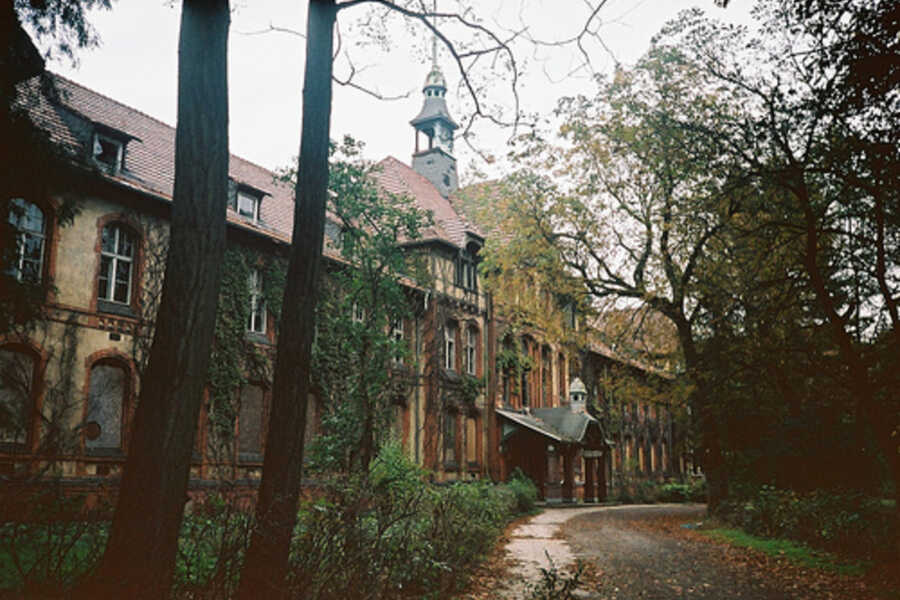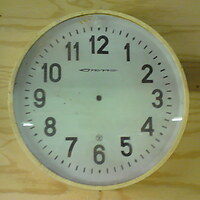One of these hospital buildings, which was in a reasonable state, housed my Studio at this time. We wondered around through these buildings a lot. The decay there was a strange reminder of times passed. At one of these hours long walks I noticed an old big clock hanging above a door in an arched hallway. Struck by the beauty of this clock I decided I wanted to take it down. With some help, I balanced on the top edge of the half opened door and took the clock with me as a souvenir. It was a Soviet clock with the letters CCCP on the clock face. But it wasn't really that old; it worked on electricity. So I took the clock to my studio.
Since I couldn't read any of the markings I just hooked a plug up to it.
To my surprise, the hands on the clock started moving back and forth, completely irregularly. Sometimes really fast and then hanging around at a certain time for twenty seconds.
It was a clock, which showed the possible times of the day in complete randomness; consecutive moments in no particular order.
The readymade I found that day became a very imported piece of work. Unfortunately the clock stopped working completely before its movements were documented. The hands I removed in order to repair the clock but I never got to do it. Now it is hanging again in my studio without the hands; telling the time without specifying the moment.



